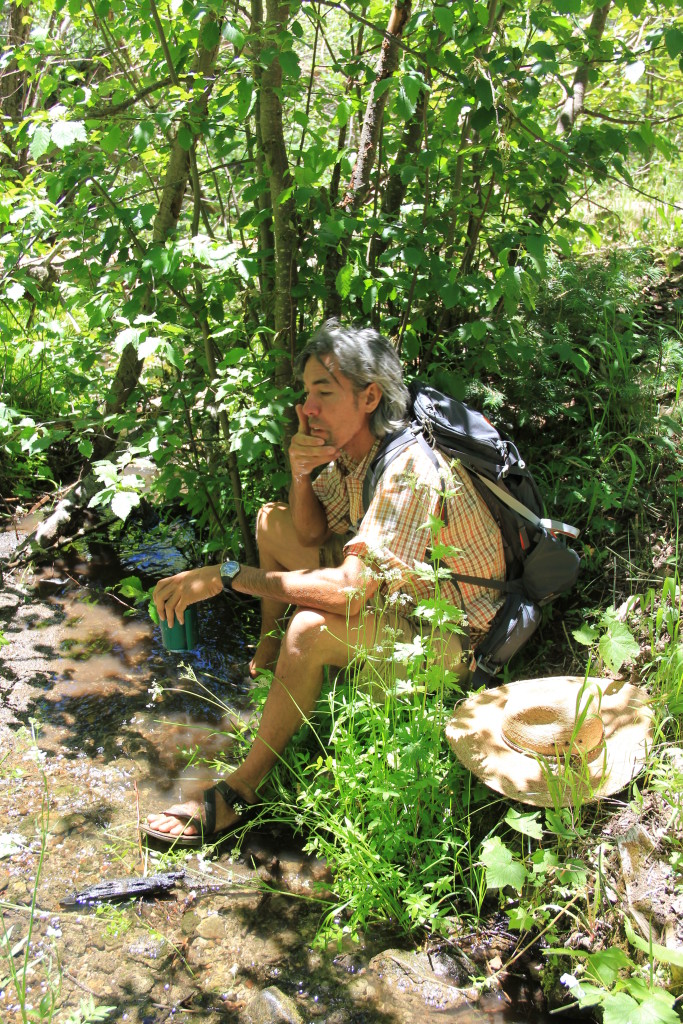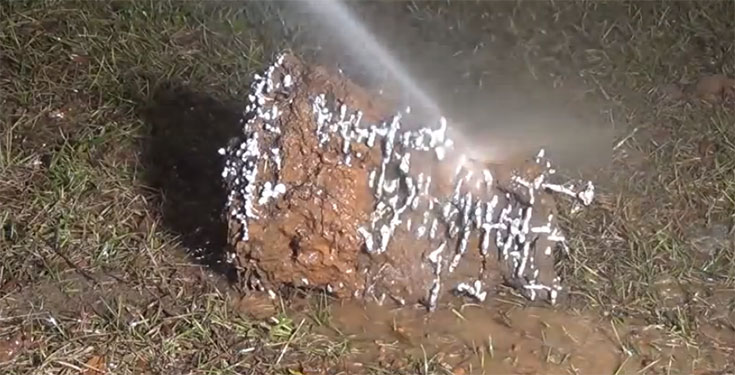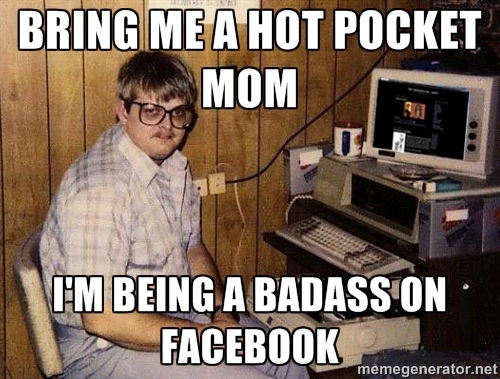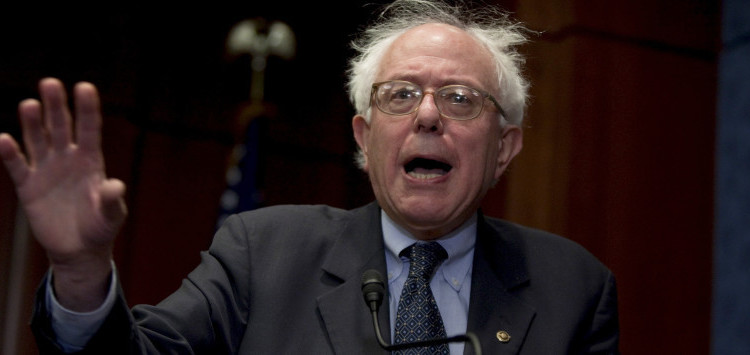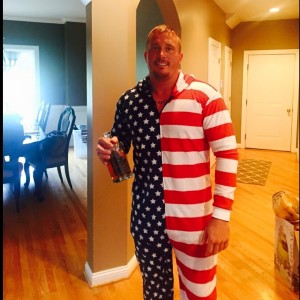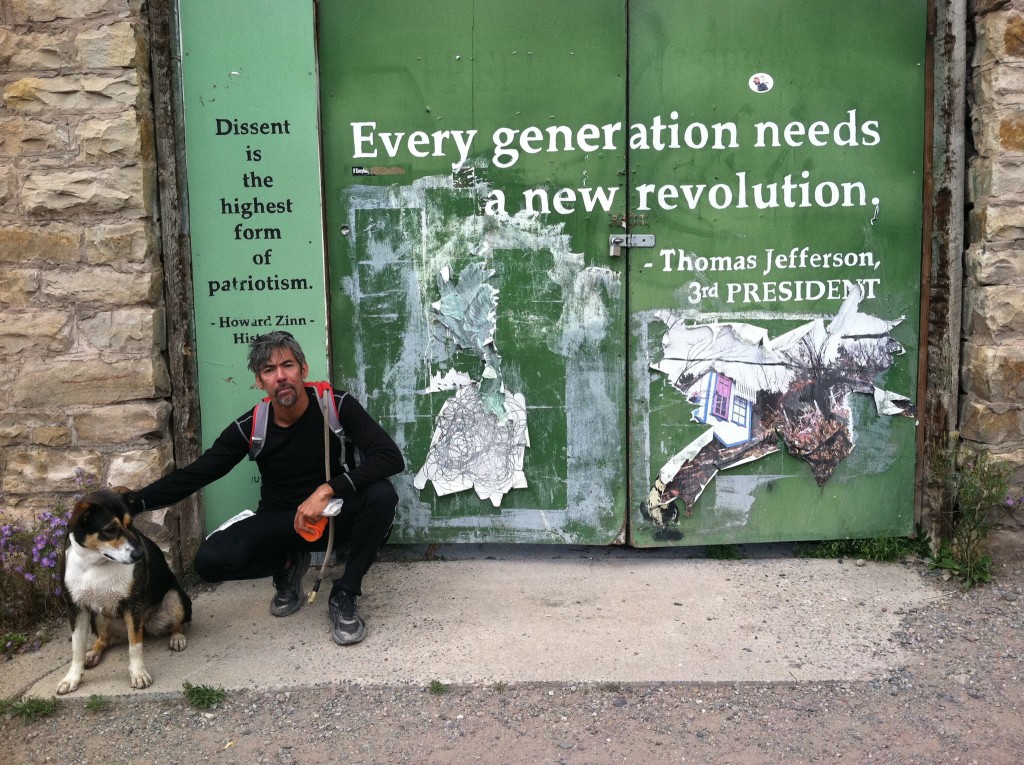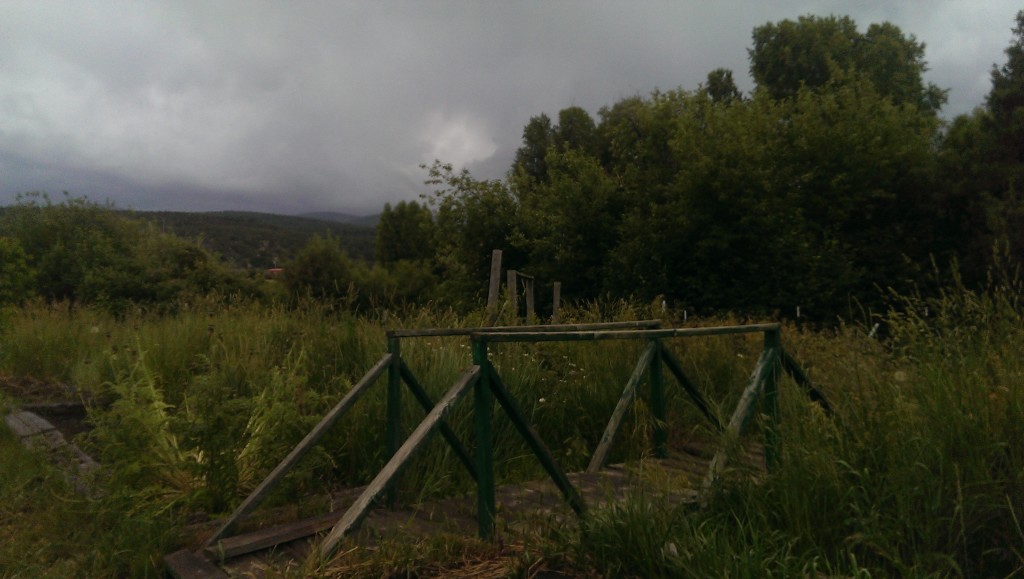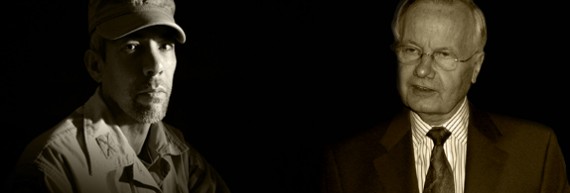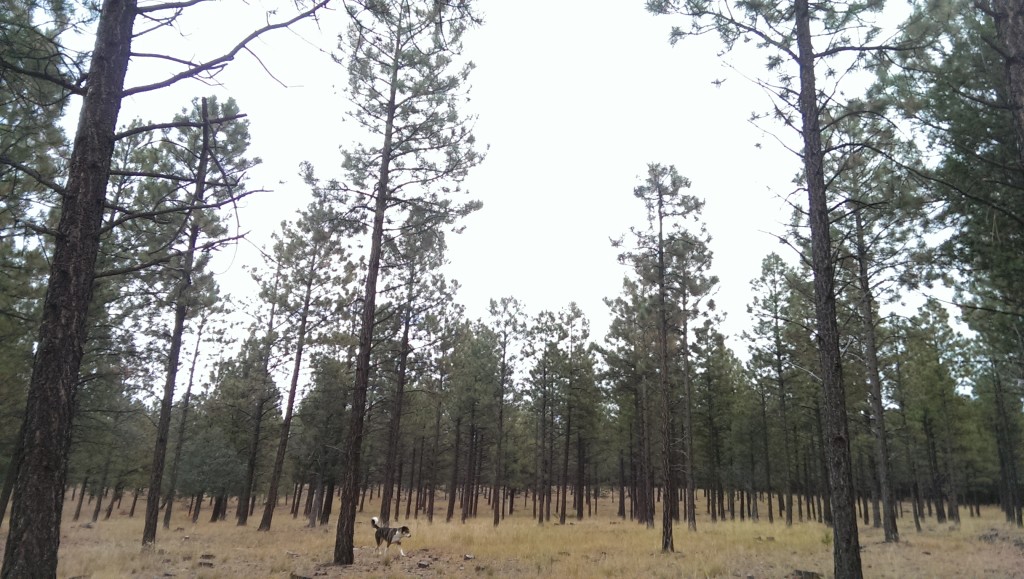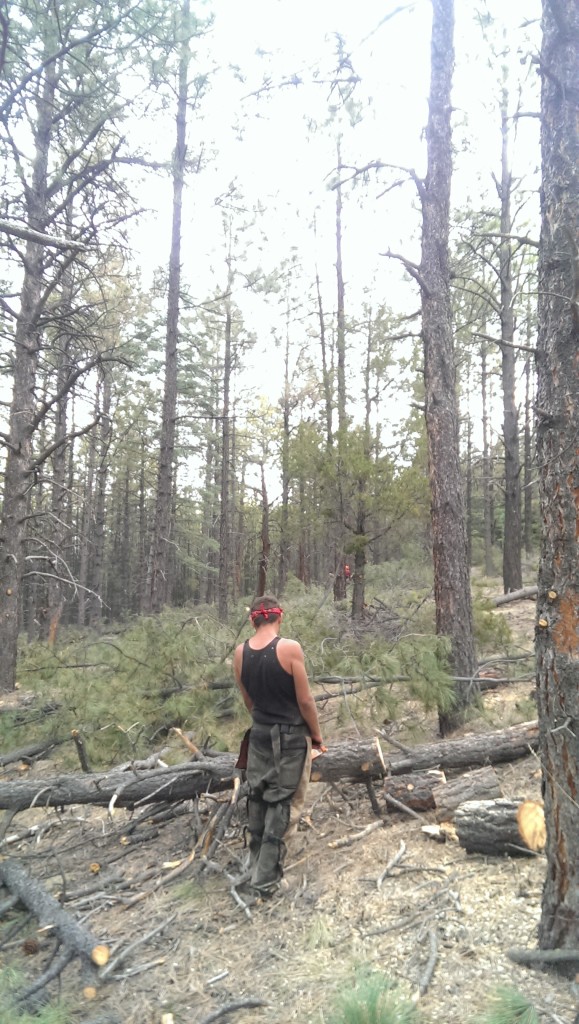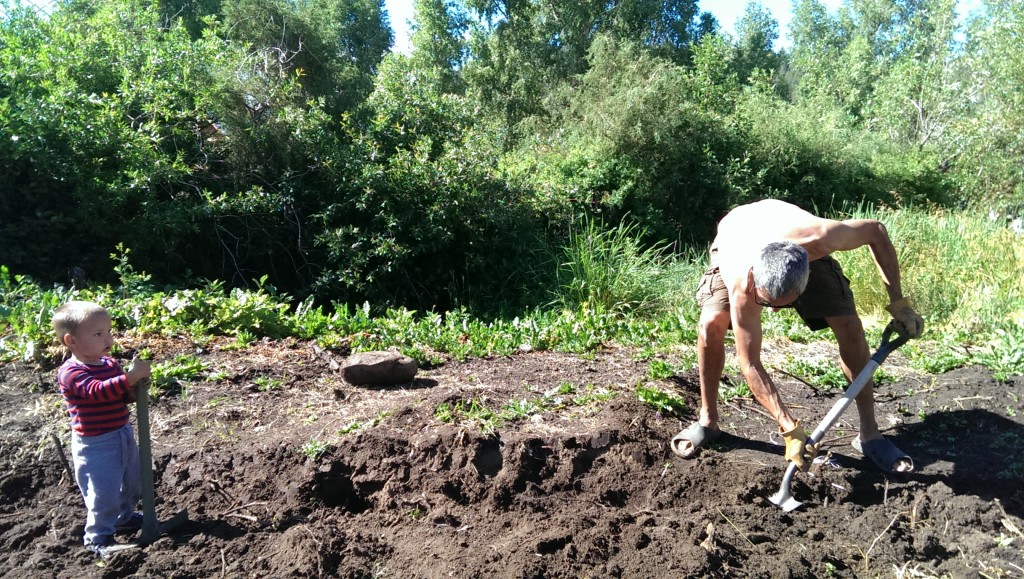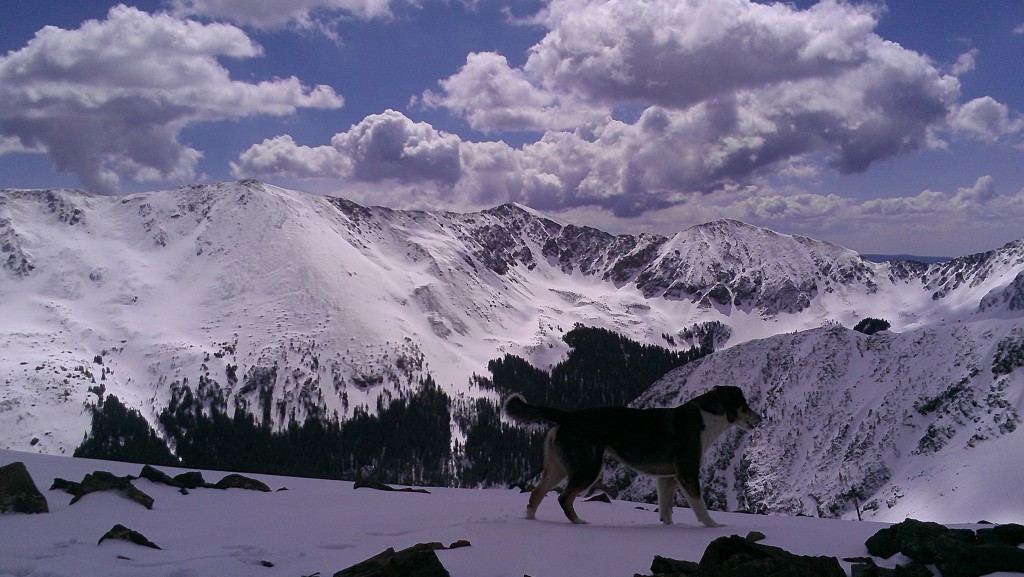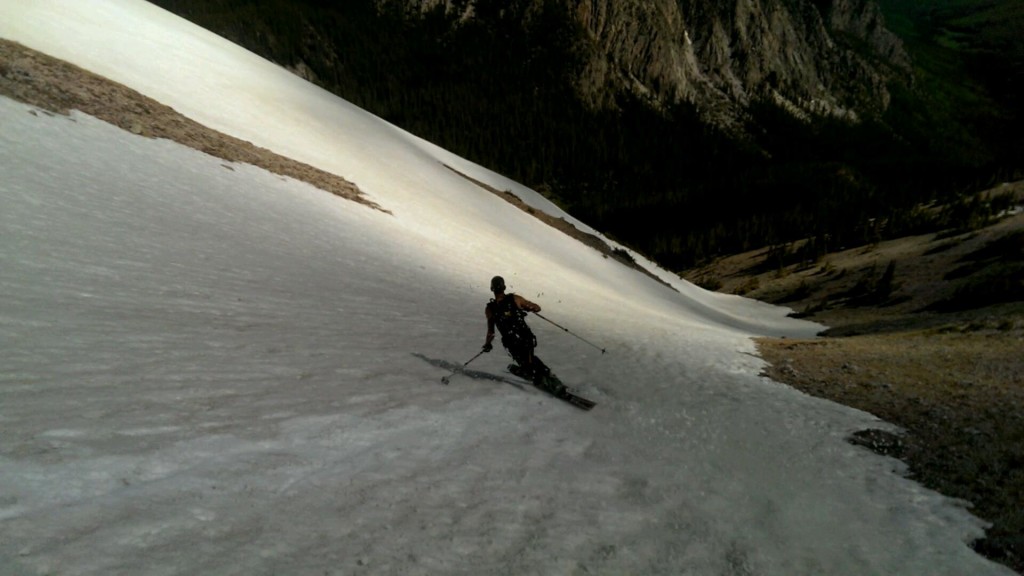I labored to get breakfast ready and get us out the door. Oatmeal and coffee for me. Oatmeal and Emergen-C for Ka’aina. I needed him healthy.
I knew something was wrong. I had slept fitfully, my back feeling like a million tiny pins against the bedsheet, sweaty, achy. But I didn’t want to disappoint my nephew. He had a dream of seeing snow. He was 17 and this was his first time away from his home on the Big Island. We had arranged to meet a friend of mine, a fellow ski patroller, and do a short 3-5 mile hike in the Pecos where we could observe a ridge line still covered in snow, even in the middle of July.
Although I felt weak on the way up, it was only at the turnaround point that I began to have some real concern. I could feel my temperature spiking. And with the sun climbing in the sky, I began to succumb. Luckily the trail ran alongside a small stream. Where there was a break in the bramble, I stopped and soaked my feet, splashed water on my face, and on my arms and legs. By this time my friend suspected I was in some trouble. I asked him if he had any Tylenol or aspirin. Fortunately, he had some acetaminophen in his fanny pack. I took a tablet. I knew once I got down to the parking lot, there was no question my next stop would be the hospital. The only time I had ever felt this weak was on a forced march in Ranger School, when I was 26. The lack of nutrition and sleep deprivation had weakened me. After 20 miles or so, plodding in the dark under a heavy load, I remember my field of vision shrinking. I could detect my body was riding the edge of collapse, that I was close to fainting on my feet. I did simple multiplication and subtraction and addition in my head to stave off a shutdown. And that is how I felt on the trail in the Pecos. I began to do the same simple addition and subtraction exercises in my head that had kept me on my feet in the dark at Fort Benning twenty years earlier.
During the last couple miles, I was moving quite slowly, like someone summiting a bitter and desolate peak. Each step was a conscious, deliberate, and agonizing effort. My friend, walking behind me, noticed what I had been aware of but had been doing my best to ignore: “It looks like your feet are trembling. I can see your feet trembling.”
We paused in the shade and I submerged my feet in the water. I knew the medication would soon help, but It was critical that I not pass out on the trail. Passed out I could no longer drink water. Passed out I could no longer assist myself. Passed out I felt I might die.
I continued to make conversation. Despite my condition, I did not want to overly alarm anyone. I still managed to point out bird feathers on the trail, and even take a few pictures of my nephew.
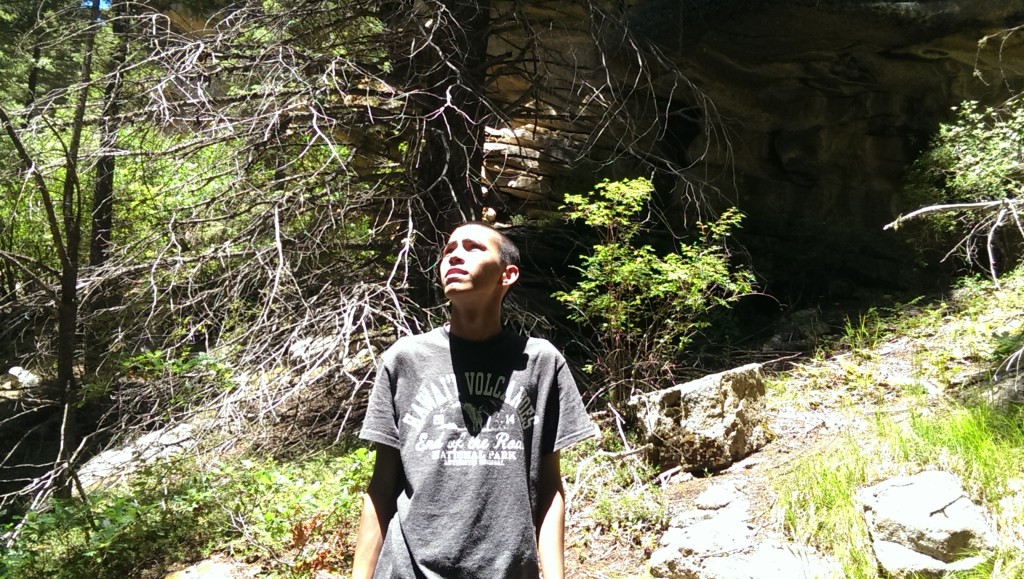 Reaching the trailhead, I felt the hardest part was over. Soon I would be in the cab of my truck and I could crank the air conditioning. We sat for a few minutes on a picnic bench in the shade. My friend was quite concerned and offered to drive. But I felt I could continue. I had the medicine in me and would soon be in the coolness of the AC.
Reaching the trailhead, I felt the hardest part was over. Soon I would be in the cab of my truck and I could crank the air conditioning. We sat for a few minutes on a picnic bench in the shade. My friend was quite concerned and offered to drive. But I felt I could continue. I had the medicine in me and would soon be in the coolness of the AC.
We stopped briefly at my house to gather my nephew’s belongings. I intoned out loud my actions as I did the few simple tasks that I normally did before leaving the house. “Turning off the lights,” I said. “Unplugging the coffee maker.” I had a peculiar feeling that I would never be back again. I felt some regret at the mess I was leaving behind.
By the time we neared Albuquerque, my fever was coming down, and instead of talking in short sentences, with a focus on breathing, like an old man, I found myself able to speak normally. But I knew there was something wreaking havoc inside me. A couple nights prior, already beginning to feel the symptoms of my illness, I had a dream that I had inadvertently drank a few swallows of brake fluid or coolant, something to do with the vehicle. I woke up troubled and uneasy, with a sense that some sort of poison was inside me.
To avoid alarming my mother, I stayed at her house long enough to eat something. She already had dishes prepared on the table. I knew I had to eat to have some strength. I had eaten almost nothing since my oatmeal breakfast. Just a peach at the turnaround point. After eating, I pushed myself away from the table, said goodbye to my nephew and mother, and made the last leg of the journey to the VA Hospital, which was about 15 minutes away.
There was only one person in the waiting room when I arrived. I approached the receptionist and, as asked, provided her my name and date of birth and last four digits of my social security number. Before returning to my seat I said, “If you have a mask, I’ll wear it.” She motioned to a small box nearby. As I reached for a mask, a rectangular cloth with four strings at each corner, I was aware of the other hands that had preceded mine, other hands that had selected masks from that same box. I reached in carefully as to only touch the one mask that would be mine. “Thank you,” I said, and returned to my seat. I put my mask on. The television, which was always on in the waiting room, was playing a Western. Men were about to have a gunfight in the street. I recognized some of the actors but no names came to mind. With my head already throbbing, I was dreading the gunfire that was coming.
Fortunately, I was called back to have my vitals taken before the shooting started. I was dizzy. Weaving a little as I walked. Every time I was up, I was looking for a place to sit down. “Is your blood pressure normally this low?” the nurse asked me. “What’s low?” I asked. From where I was sitting, I could not easily see the readout of the digital display on her blood pressure monitor. I tilted my head a little. Even the smallest movement came with some effort. 95/63. “No, that is unusual,” I said. “Okay,” she said. She took down the rest of my symptoms, shortness of breath, fever, achings in my joints, headache, and asked me to have a seat.
I barely had time to shuffle back to my seat before my name was called again, this time to have my blood drawn. Shortly thereafter the ER doctor came by.
She had a serious expression on her face. After her exam, she indicated that she was going to be conferring with other doctors and ordering X-rays of my chest. “Why?” I asked, suspiciously. What was wrong with my chest. “It’s the coughing and the phlegm. It will help us learn more about what is going on.” I nodded my head.
About half an hour after she left, two physicians appeared at the door. “I must have an exotic disease to get two doctors,” I quipped, trying to make light of my situation. They introduced themselves, and asked about my symptoms. They listened attentively and then asked if they could examine me. The female physician requested permission to do a palpation of my groin area. “Yes, go ahead,” I said. In the middle of their exam, the male doctor stopped and said something I had never heard before from a doctor or anyone else: “If your heart or lungs stop, what would you like us to do?” Even in my groggy condition, I could feel his words hanging in the air and in my brain like heavy weights.
“Let me think about that,” I said, stupidly. So my heart and lungs might stop at any time. Regardless of what I wanted. Regardless of how committed I was to living. They are asking me this because whatever I have might literally stop my heart. Right here. Without any warning. Stop my lungs. Right here on this table. Right here in this room. The lights seemed very bright. With each exhalation, the inner edges of my glasses misted a little from the mask. I thought of my sons.
“Try to revive me,” I said. The female doctor gave me a thumbs up. They continued with their examination. Had I been stung by any ticks? Any mosquitoes? Been around any mice or rodent droppings?
“Okay, what are the possibilities?” I blurted out. I couldn’t take it anymore. I had to speak. “You know what they say,” the female doctor said, “New Mexico is the Land of the Free and the Home of the Plague.” The Plague? For real? The Plague? You have got to be shitting me, I thought. But there was more. “And with your exposure to rodent droppings, we have to consider the possibility of Hanta virus.”
“But at this stage in the game, we are merely speculating. But we are going to be pumping you full of fluids, including antibiotics, and we are conducting a battery of tests on your blood. Because it’s the weekend, some of this work may take a little longer than normal. That is out of our control. But we will do the best we can to have answers for you. We are concerned about all these symptoms. It is clear there is a serious fight going on in your body. Maybe it is just sepsis. We will be back when we have more information. But we are going to be admitting you to the hospital. Continue wearing your mask.”
During the next hour, liquids continued to be pumped into me through an IV. Because of the fever, the coolness of the liquid flowing into my bloodstream, which I could feel throughout my body, was comforting. Because of all the liquids, I had to make several trips to the bathroom. One of the nurses asked if I would prefer a urinal, a small container so that I could just pee in the room. I tried to laugh. “No, the trips to the bathroom give me a sense of accomplishment.” It was true. Walking those steps to the bathroom made me feel like I was far from the edge of the precipice, which it appeared I might very well be.
Being admitted to the hospital meant getting into a wheelchair, and being pushed down the hall and into an elevator, which took us to the fifth floor. Everyone has heard horror stories of the VA. But as I was pushed down the corridor towards my room, I felt reassured and comforted by my surroundings. The room was spacious, clean and cool. My nurse, named Cyndi, was a young Latina. She directed me to some hospital pajamas and oriented me to the room. Her demeanor was just what I could have hoped for in a nurse: reassuring, gentle, and attentive. It was getting late and I was exhausted, but I was reluctant to sleep. The talk about my heart and lungs stopping made me want to remain awake at all cost. Somehow it seemed less likely that any of my essential body functions could shut down while I was conscious. Cyndi showed me how to operate the TV. There was a selection of movies, none of which I had seen, since I don’t watch movies. Cyndi was just a push button away. Despite how horrible my body felt, I felt comfortable enough to spend a few minutes playing with the controls of the bed.
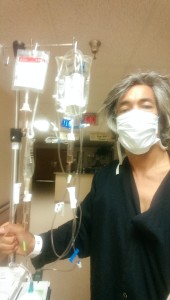 It was a restless night. In the morning I was transferred to a room that provided even greater isolation, being at the end of the hall. Until the test results were in, the staff were taking as many precautions as they could around me. By this time, everyone was in masks and gowns when they came in to dispense medication, take my vitals, and keep me updated on my status. It was unnerving but I understood. Whatever I might have, no one else wanted. But this didn’t mean they didn’t care about me. Quite the opposite. I felt very well cared for. But it was the not knowing that was gnawing at my gut. A stream of meals and movies was all I had to distract myself with. I watched the entire EuroCup Final between Portugal and France. I rejoiced when Portugal scored in extra time. I rejoiced when the whistle blew and Portugal was victorious! If Portugal could win the final against France, without Reynaldo, no way was I going to die in the hospital! From that point on, I felt a little better.
It was a restless night. In the morning I was transferred to a room that provided even greater isolation, being at the end of the hall. Until the test results were in, the staff were taking as many precautions as they could around me. By this time, everyone was in masks and gowns when they came in to dispense medication, take my vitals, and keep me updated on my status. It was unnerving but I understood. Whatever I might have, no one else wanted. But this didn’t mean they didn’t care about me. Quite the opposite. I felt very well cared for. But it was the not knowing that was gnawing at my gut. A stream of meals and movies was all I had to distract myself with. I watched the entire EuroCup Final between Portugal and France. I rejoiced when Portugal scored in extra time. I rejoiced when the whistle blew and Portugal was victorious! If Portugal could win the final against France, without Reynaldo, no way was I going to die in the hospital! From that point on, I felt a little better.
When a doctor came in and delivered the news that I did not have the plague, or Hanta virus, or anything else they could recognize, I wept. He stood patiently and allowed me to cry, saying nothing. He must have known very well what had been going through my head over the last 48 hours. When he saw that I was recovered, he indicated that I could go ahead and suspend the antibiotics regime if I wanted. And that I didn’t need the mask anymore. Then he left.
I lay there blankly in the bed. The feeling of being granted a second life was unmistakable. I turned off all the lights in the room and tottered into the shower. I peeled the tape slowly back that secured the IV in place in the crook of my left elbow and then gently pulled out the IV. I shook off my hospital pajamas. The last thing I took off was my mask. Then I stood beneath the hot shower in complete darkness.
After my shower, I toweled off and put my hospital pajamas back on. I went out into the hall for the first time without a mask. There was a young man in the hallway with a portable machine that could be pushed around. He could have been a resident, doctor, nurse, tech, who knows.
“I don’t have Hanta virus,” I said, grinning. He smiled back at me just as broadly. “That’s great,” he said. He knew exactly what was us. I drifted up and down the corridors in a strange state, greeting every stranger like a long lost relative. “It’s so good,” I told people, people I would never see again, people I was seeing for the first time. I was still weak, my body was still fighting something, but I was practically skipping around delirious with joy.
Shortly after returning to my room, the head physician of Yellow Team, the team that had been assigned to me, came by to say that they would be discharging me in the next few hours.
The VA gets a bad rap at times. Because of this I want to recognize the excellent care and treatment I received during a very difficult time. Everyone who attended to me was caring and compassionate and professional. I wish to recognize by name the nurses that cared for me in Ward 5A: Nurse Cyndi, Nurse Boi, and Nurse Jerry, as well as the team of doctors, known as the Yellow Team, led by Dr. Smith. The infectious disease doctors from UNM were similarly excellent.
I am grateful to keep on with this life.
P.S. Go Jill Stein and Cornel West! #TheDoctorsAreIn

